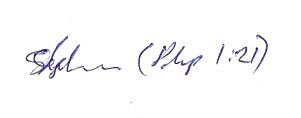sorry Cobb I'm stealing your thread for a question
Josh
say you take a Greek lexicon and key it to Strongs numbering and replace Hebrew text with the Strongs numbers
substantial research goes into the keying process and Hebrew text replacement
would that qualify for a copyright
Hi Dave,
Essentially I think what Josh is talking about is where an edition has gone into the Public Domain, that by just making a few changes here and there in the text itself whether by changing the typesetting, the layout and generally by doing some housework on the original work does not qualify for it for copyright status.
A good example of something that was in the Public Domain and has reverted to Copyright is Vine's Expository Dictionary of Old and New Testament Words. This was reverted to Copyright because Thomas Nelson Publishers sought permission from the W.E. Vine Estate to update it by including works by Merrill F. Unger, William White, Jr. And as a result of that the Copyright was restored by the GATT Treaty to W.E. Vine Copyright Ltd which Thomas Nelson Publishers probably bought and own.
As to the amount of work by Unger and White that has been added into Vine's Dictionary actually matters squat. Its the fact that "new" work from someone else has been added which makes the difference.
I have both a hard and electronic (e-Sword) copies of Vine's, and in the e-Sword edition, its noted to whom the authors are in the Information dialog. Its worth the read.
I hope this information is helpful and gives a clearer understanding.
Blessings,






















